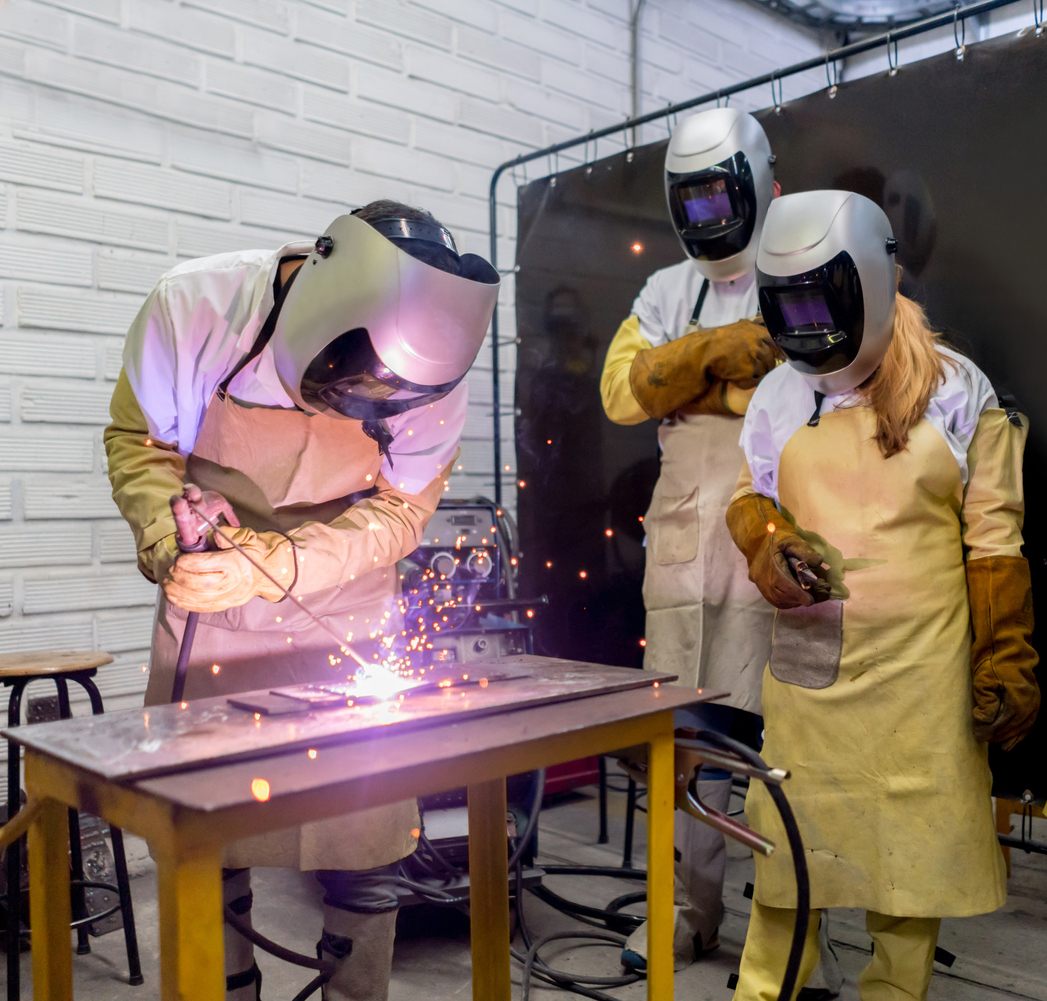“How long is welding school?” is frequently asked by those considering this career. Of course, it’s understandable to want to know how much effort and time is required to achieve your goals. Luckily, some programs like those offered at Southern Careers Institute grant certificate completion in as little as seven months.
Please keep reading to learn more, and get ready to explore the world of welding with us and discover the possibilities awaiting you in this hot field!
Understanding Welding School
Welding is a skilled labor profession with prospects in the aerospace, construction, power, and oil sectors. However, what does welding school truly encompass, and what is it precisely?
Attending a welding school is a reasonable decision when contemplating entering the skilled trades workforce. Welding school comprises an exclusive establishment granting knowledge and instruction on welding techniques. Welding programs vary in structure and level, ranging from certificate to diploma to college degree programs.
Types of Welding Programs Available
There are other routes to achievement besides attending college. Trade schools, like welding schools, offer a different yet valuable educational experience. While college can broaden your knowledge and help you develop critical thinking skills, trade schools give you specific, industry-specific skills which will make you highly employable.
A recent study found trade schools can help students understand their aptitude for a particular profession and increase their desire to pursue a career in a skilled trade.
Each professional welding school offers different curriculums for welding techniques. At Southern Careers Institute, you learn about the following:
- Shielded Metal Arc Welding – Stick welding uses an electrode coated in flux to generate an electric arc to melt materials. It\’s a versatile technique for welding most metals, including thick sections and rusty or dirty materials.
- Gas Metal Arc Welding – MIG (Metal Inert Gas) welding, this technique uses a continuous wire electrode fed through a welding gun and an inert gas to protect the weld from contaminants. It’s a fast and efficient approach for welding thin to thick metal sections.
- Flux Cored Arc Welding – Similar to MIG welding, this technique uses a continuous wire electrode, but the wire is filled with flux, eliminating the need for a separate shielding gas.
- Gas Tungsten Arc Welding – Also known as TIG (Tungsten Inert Gas) welding, this technique uses a non-consumable tungsten electrode and an inert gas. It’s a precise technique that produces high-quality welds, especially for thin sections and non-ferrous metals like aluminum and magnesium.
These skills will prepare you for a career in commercial, industrial, and small business environments.
Differences Between Welding School and Traditional College
The dissimilarities between welding school and traditional college are stark. Welding school immerses students in tangible, authentic welding techniques, which are imperative for attaining the skills required for excelling in the industry.
In contrast, traditional college education emphasizes theoretical knowledge and abstract ideas. While this is significant for obtaining a profound comprehension of a subject, it may necessitate additional preparation for the practical aspects of the profession.
Furthermore, traditional college mentors may possess different levels of hands-on experience than their welding school counterparts. Finally, it may deny you the chance to get knowledge from individuals who have already experienced something in the field.
Get Your Hands Dirty With Welding School!
If you are a young person aspiring to pursue a career in the skilled trades, be unafraid to get your hands dirty. Welding school may be the ideal selection for kindling your future.
Ultimately, determining between trade school and college depends on your interests, life plans, and career objectives. Nevertheless, with 70% of jobs demanding post-secondary education by 2027, either alternative will assist you in becoming a competitive candidate.
Forging Ahead With the Right Welding School
If you’re passionate about welding and ready to take your skills to the next level, you’ll want to choose the right welding school. There are several factors to consider when selecting a school, including accreditation, location, and reputation.
SCI offers hands-on welding training in six convenient locations across Texas:
- Austin
- Corpus Christi
- Harlingen
- Pharr
- San Antonio North
- Waco
Our experienced instructors will train you with the skills and knowledge needed to perform everyday welding tasks in various industries. Through academic expertise and hands-on lab work, you will learn about welding safety, machine setup, metallurgy, and other topics.
At SCI, we like to set up our students for success. Our welding program aligns with industry credentials and provides a broad knowledge base to help perfect both your hard and soft skills.
Employment Opportunities
Graduates may find entry-level employment in fabrication, cutting, soldering, or brazing as a welding apprentice, structural welder, welder helper, general welder, combo welder, metal fabricator and fitter, and machinist.
How To Pay for Your Welding School
Paying for your welding education can be daunting, but don’t stress! There are various pathways to assist with the financial burden. For example, you may request assistance through vocational rehabilitation, employment programs, grants, and scholarships, among other opportunities, provided you fulfill the prerequisites.
Furthermore, federal grants, loans, institutional scholarships, and military assistance programs may also be accessible for those who qualify.
Southern Careers Institute
Are you seeking a fulfilling career as a welder in the vast state of Texas? Then, look no further than Southern Careers Institute — we offer training on the skills needed to pursue a new career through our welding program.
Ready to embark on the next phase of your welding ambitions? Visit SCI‘s website to learn more!
With SCI, you can seize the reins of your future. So why waste another moment? Start forging ahead today!












